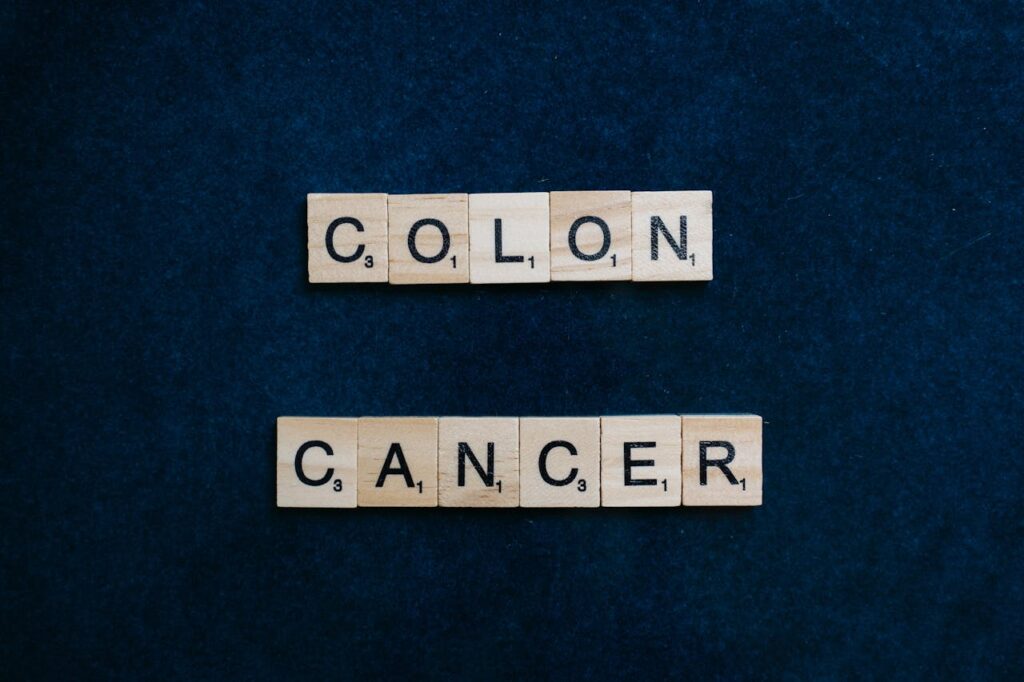Does Colon Cancer Cause Urinary Incontinence?

Colon cancer is a life-threatening disease that affects millions of people every year.
It is the third most common cancer in the United States and the second leading cause of cancer death.
But can it cause urinary incontinence? The answer is, it depends.

While many studies have looked at the link between colon cancer and urinary incontinence, the evidence is far from conclusive.
On one hand, some research suggests that there may be a link between the two, while other studies have found no connection.
So, can colon cancer cause urinary incontinence? To answer this question, we need to take a closer look at the research.
Discover Your Path to a Longer, Healthier Life!
Take our free quiz to see how your lifestyle measures up to the world's longest-living communities and receive expert tips for a healthier, longer life.
Take the QuizTable of Contents
- The Silent Killer: The Effects of Colon Cancer on Our Bodies
- Urinary Troubles: How Colon Cancer Impacts Your Bladder
- The Surprising Link: Colon Cancer & Urinary Incontinence!
- Fight Colon Cancer Now: Uncover its Physiological Impact!
- The Impact of Exercise on Urinary Incontinence in Colon Cancer Patients
- Frequently Asked Questions
- Final Thoughts
The Silent Killer: The Effects of Colon Cancer on Our Bodies
Colon cancer is a serious problem that affects millions of people worldwide.
It is a type of cancer that starts in the large intestine (colon) or rectum and can spread to other organs in the body.
This type of cancer is especially dangerous as it can be difficult to detect in its early stages and is the second leading cause of cancer-related deaths in the United States.
The most common symptom of colon cancer is a change in bowel habits such as diarrhea, constipation, or rectal bleeding.
Other symptoms can include abdominal pain, fatigue, and unintended weight loss.
Colon cancer can also cause anemia, which is a decrease in red blood cells. If you experience any of these symptoms, it is important to talk to your doctor about possible colon cancer.
Colon cancer can be life-threatening if not treated in its early stages.
Treatment typically involves surgery to remove the cancerous tumor and any affected tissue.
In some cases, chemotherapy and radiation may be used to kill any remaining cancer cells.
It is important to seek treatment as soon as possible to reduce the risk of the cancer spreading to other parts of the body.
By being aware of the symptoms and risk factors associated with colon cancer, we can take steps to protect our health and ensure early detection.
Regular colonoscopies are important for early detection and should be done regularly if you are over the age of 45 or if you have a family history of colon cancer.
Lifespan Comparison Tool
Compare the life expectancy by the U.S. State
Urinary Troubles: How Colon Cancer Impacts Your Bladder
Colon cancer is a type of cancer that affects the large intestine, also known as the colon.
It is the third most common type of cancer in both men and women, and can have an effect on a number of other body systems, including the urinary system.
When someone is diagnosed with colon cancer, they are likely to experience a variety of urinary symptoms as the cancer progresses.
Some of the most common urinary symptoms of colon cancer include difficulty urinating, frequent urination, urgency to urinate, and blood in the urine.
In some cases, a person may also develop a urinary tract infection as a result of the cancer.
The most serious urinary symptom of colon cancer is the presence of a mass in the bladder, which can be caused by the cancer spreading from the colon to the bladder.
This can cause a blockage of the urinary tract, which can result in severe pain, difficulty urinating, and a number of other serious symptoms.
Surgery is usually necessary to remove the mass and prevent further complications.
In addition to these urinary symptoms, colon cancer can also cause a variety of other symptoms, such as abdominal pain, fatigue, and weight loss.
It is important to be aware of all potential symptoms of colon cancer and seek medical attention if any of these symptoms are present.
Early detection and treatment are key to a successful outcome in colon cancer cases.
The Surprising Link: Colon Cancer & Urinary Incontinence!
In conclusion, colon cancer can cause Urinary Incontinence in some cases.
Research has identified a few risk factors that can increase the chances of developing Urinary Incontinence due to colon cancer.
These include advanced age, a history of urinary problems, and certain treatments and surgeries related to colon cancer.
While there is no guarantee that a person with colon cancer will experience Urinary Incontinence, there is a possibility that it can occur. It is important to take the necessary steps to reduce the risk of developing Urinary Incontinence if you have been diagnosed with colon cancer.
Talk to your doctor about what treatments and lifestyle changes may be necessary to reduce the chances of developing Urinary Incontinence.
By taking action, you can potentially decrease your risk of developing this condition.
In the Dallas-Fort Worth Metroplex?
Discover how our cutting-edge medical practice enhances longevity. Detect dementia years in advance, assess your vascular age, and proactively monitor crucial indicators to prevent major issues.
Learn MoreFight Colon Cancer Now: Uncover its Physiological Impact!
Colon cancer is a malignant tumor that originates in the cells of the colon or rectum.
It is the third most commonly diagnosed cancer, and the second leading cause of cancer-related death in the United States.
- Physiologically, colon cancer can cause a range of effects, including:
- Pain: Pain from colon cancer may be felt in the abdomen, rectum, or pelvis.
- Diarrhea: Diarrhea is a common symptom of colon cancer, as the tumor can disrupt the digestive process.
- Nausea and vomiting: Nausea and vomiting may occur as the tumor presses on the stomach and intestines.
- Fatigue: Fatigue is a common symptom of colon cancer, as the body needs more energy to deal with the disease.
- Weight loss: Weight loss can occur as the tumor causes the body to use more energy than it takes in.
- Constipation: Constipation can occur due to the tumor blocking the digestive tract.
- Anemia: Anemia can occur due to the tumor causing the body to lose red blood cells.
Colon cancer can be life-threatening if left untreated, so it is important to seek medical attention if you experience any of the above symptoms. Early detection is key to successful treatment and can help improve the prognosis for those affected by colon cancer.
The Impact of Exercise on Urinary Incontinence in Colon Cancer Patients
Exercise can play a significant role in managing urinary incontinence in colon cancer patients.
Regular physical activity and specific exercises targeting the pelvic floor muscles can help strengthen these muscles, improve bladder control, and reduce the frequency and severity of urine leaks, thereby enhancing the quality of life.
Colon cancer treatments, such as surgery, radiation therapy, and certain medications, can weaken the pelvic floor muscles and lead to urinary incontinence.
However, engaging in gentle exercise, such as walking or swimming, can help improve muscle strength and control.
Kegel exercises are particularly beneficial for strengthening the pelvic floor muscles. These exercises involve contracting and relaxing the muscles that control urine flow.
It is recommended to perform Kegel exercises several times a day for optimal results.
In addition to regular exercise, maintaining a healthy weight can also help reduce the risk of urinary incontinence in colon cancer patients.
Excess weight can put additional pressure on the bladder and pelvic floor muscles, leading to urine leaks.
It is important for colon cancer patients to work closely with their healthcare team, including doctors, nurses, and physical therapists, to develop an individualized exercise plan that takes into account their specific medical conditions and treatment effects.
A specialist nurse or physical therapist can provide guidance on proper exercise techniques and help monitor progress.
It is also important for colon cancer patients to practice good bladder habits, such as going to the toilet in time, avoiding artificial sweeteners and caffeine, and staying hydrated.
These lifestyle changes can help manage urinary incontinence symptoms.
If urinary incontinence persists despite lifestyle changes and exercise, there are medical interventions that can be explored.
These may include medications to improve bladder control or surgical procedures to address underlying issues causing urinary incontinence.
Frequently Asked Questions
Here, we take a look at important questions you might have on urinary incontinence and colon cancer.
Can overactive bladder contribute to urinary incontinence in patients with colon cancer?
Yes, overactive bladder (OAB) can contribute to urinary incontinence in patients with colon cancer.
Overactive bladder is a condition characterized by a frequent and sudden urge to urinate, often accompanied by urinary urgency and sometimes urinary incontinence, which is the unintentional loss of urine.
Are pelvic floor exercises effective in colon cancer patients managing urinary incontinence?
Pelvic floor exercises can be highly effective in managing urinary incontinence in colon cancer patients.
These exercises target the muscles that support the bladder, urethra, and other pelvic organs, collectively known as the pelvic floor muscles.
Strengthening these muscles can improve bladder control and reduce urinary leakage, thereby alleviating symptoms of urinary incontinence.
How does physical therapy help colon cancer patients in managing urinary incontinence?
Physical therapy plays a crucial role in helping colon cancer patients manage urinary incontinence by addressing various aspects of their condition.
In rectal cancer, colorectal cancer and esophageal cancer, physical therapy is beneficial for patients with these types of cancer, especially if they have undergone surgery or radiation therapy, which can affect pelvic floor muscles and lead to urinary incontinence.
What surgical techniques are available for treating urinary incontinence caused by colon cancer?
When it comes to treating urinary incontinence caused by colon cancer, several surgical techniques are available, each tailored to address specific underlying factors contributing to the condition.
These include colostomy, artificial urinary sphincter implantation, bladder neck suspension surgery, sacral nerve stimulation and augmentation cystoplasty.
Final Thoughts
Urinary incontinence can be a challenging symptom for colon cancer patients to deal with, but it is important to remember that there are various strategies and interventions available to help manage and alleviate these symptoms.
Working closely with a healthcare team, including doctors, nurses, and physical therapists, can provide valuable guidance and support in developing an individualized plan to address urinary incontinence.

 972-393-1699
972-393-1699





